The scripted TV sector’s prolonged downturn has upended the drama production business. On the eve of Mipcom, leading TV executives tell Screen how they are navigating a changed landscape.
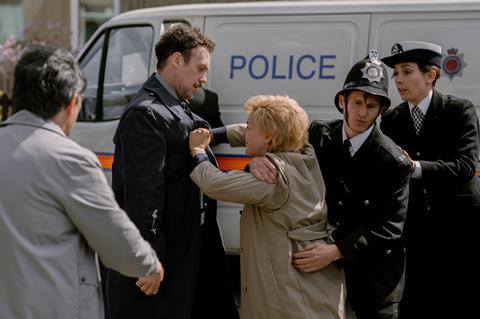
For several years, the scripted TV industry has lived in hope of a return to the streamer-fuelled peak-TV production boom of post-Covid 2021 and 2022. Following the brutal downturn that began in late 2023 with the US entertainment industry strikes, phrases such as “Stay alive till ’25” or “Stay in the mix till ’26” did the rounds — both suggesting that business would return to its previous heights.
Now, however, there is a weary acceptance that the TV industry is not experiencing a temporary downturn, but something more fundamental and long term.
Warp Films is behind one of the most lauded series of 2025, Netflix’s Adolescence — winner of six Primetime Emmys — as well as acclaimed BBC thriller Reunion. But even Sheffield-based Warp is finding 2025’s production landscape difficult, reports chief creative officer Emily Feller. The company has not filmed at all this year, although it will be back in production next year. “It’s tough out there. I don’t get a sense of a massive upturn either,” she says.
The figures confirm this: global scripted TV orders are 25% below their 2021 peak, according to Ampere Analysis. “This is the new normal,” Ampere executive director Guy Bisson told delegates at the Royal Television Society (RTS) Cambridge Convention last month.
The US industry has suffered more than most, with production 33% below its five-year average as producers seek lower costs elsewhere, according to recent FilmLA figures. Even countries that have benefited from runaway production are struggling: 45% of drama workers in the UK are out of work, according to creative industries union Bectu.
Times are good for a lucky few. Big-budget returning series such as Prime Video’s The Lord Of The Rings: The Rings Of Power, HBO’s House Of The Dragon and Disney+’s Ashoka are currently filming in the UK, drawn by the country’s generous subsidies and impressive soundstages.
But spiralling costs, a collapsing ad market and funding cuts by traditional broadcasters mean there is less money for homegrown scripted programming in the UK and many other countries. At the same time, global streamers have become more cost-conscious, with a focus firmly on efficiency and profits rather than subscriber growth at any cost.
“There are fewer series being commissioned,” confirms Marco Chimenz, group co-managing director of European producer-distributor Federation Studios. “We’re still going through a rough patch, and it will last at least a few more months.”
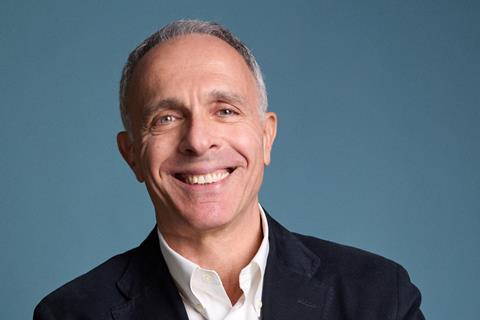
Chimenz argues the industry became accustomed to a TV commissioning bonanza, believing that revenues from international sales, in particular to the US, would cover the gap of any big-budget English-language series — and, to a lesser extent, non-English-language series. “None of this is happening anymore,” he says. “There are a few exceptions. But this is the basis of the downturn.”
In the UK, a greenlight from a UK broadcaster on a major drama series has effectively become meaningless because they are only able to provide around a third of the financing required to get cameras rolling.
Traditionally, funding gaps might have been plugged by distributors and tax credits. Distributors, in particular, could be relied on to put down significant minimum guarantees on the basis they would make their money back, especially from a US sale. But distributors are now reluctant to provide significant gap finance, given the caution of international buyers. Many producers, in particular, point to a dearth of interest from US buyers in international fare.
It means producers are scrabbling for co-production finance and looking to pre-sell rights to key territories, in the process reducing the appetite for distributors to gap finance. “Putting together larger, more ambitious English-language shows has become increasingly difficult,” says Chimenz. “Very often it requires an act of bravery in terms of gapping the deficit.”
Squeezed middle
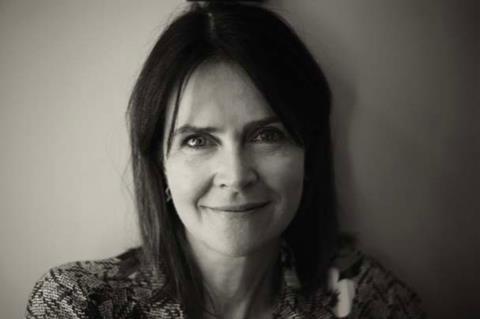
Mid-sized shows are struggling most of all. “You can either make shows for a pretty low budget or you can make something expensive for the streamers,” says Liza Marshall, founder of Hera Pictures, whose recent series include ITV’s I Fought The Law, starring Sheridan Smith, and the BBC’s What It Feels Like For A Girl, as well as Chloé Zhao’s recent Toronto audience award winner Hamnet, starring Jessie Buckley and Paul Mescal.
Adding to the sense of alarm is the growing battle for TV to stand out in an ‘attention economy’ where social media and YouTube are competing for viewers and advertising money. YouTube’s rise as a TV service was the talk of the RTS Cambridge Convention. It now has a 13% share of viewing on all large TVs in the US, with Disney at number two, according to Nielsen figures.
At RTS Cambridge, many said YouTube was regularly outranking the BBC as the most-watched platform in the UK — something that would have been unthinkable just a few years ago. As a result, there is a growing momentum in favour of regulation of the Google-owned platform. UK culture secretary Lisa Nandy is calling for public service broadcaster content to be more prominent on YouTube, warning the government is prepared to legislate if required.
Many also believe the TV industry will continue to see consolidation in the months and years ahead, as legacy studios look to compete with technology-driven platforms such as YouTube, Prime Video, Apple TV+ and Netflix. David Ellison’s recently merged Paramount Skydance is reportedly weighing an offer for Warner Bros Discovery, the UK’s ITV continues to be the subject of acquisition chatter, and the Berlusconi family-run broadcasting group MFE-MediaForEurope has just taken over Germany’s ProSiebenSat.1.
As well as the need to compete with global platforms, such deals are being driven by efficiency savings. But this augers badly for producers, reducing the number of major buyers.
There are other factors at work contributing to the challenged scripted climate. The adoption of advertising on streaming platforms means they are more interested in broad-appeal content that attracts loyal repeat viewers. At RTS Cambridge, Ampere’s Bisson observed that streamers are starting to act more and more like traditional broadcasters, coining the term the “broadcastification” of streaming.
The result is a focus on returning series rather than new commissions, as well as more dependable content such as crime, reality TV and sports. Notably, streamer spending on sports coverage has doubled in the past year. Licensing has also come back into vogue in the past two years, having proved itself a cost-effective way to retain subscribers.
Given this background of consolidation, cost-cutting, competition and changing business models, it is little wonder that commissioners at both traditional broadcasters and streamers have become increasingly risk-averse. Many say commissioners are favouring trusted suppliers — production companies and writers with a strong track record — over up-and-coming outfits or new voices. “Less experienced producers are being sidelined,” confirms Chimenz.
This has led to a division in the industry, where a number of experienced and acclaimed production companies are still very active but many others are enduring lean times. Even long-established outfits have shut up shop: recent closures include Red Production Company (It’s A Sin, Happy Valley), Endor Productions (Vienna Blood, State Of Play) and Euston Films (Nightsleeper).
Active production companies, meanwhile, are struggling with ever-tightening margins amid persistent inflation. “Costs are still going up but most of the commissioners are not paying more,” says Chimenz. “So margins are being squeezed to a level where there isn’t much difference anymore between being a producer for hire and a producer that develops and takes a risk on an original programme.”
Known quantities
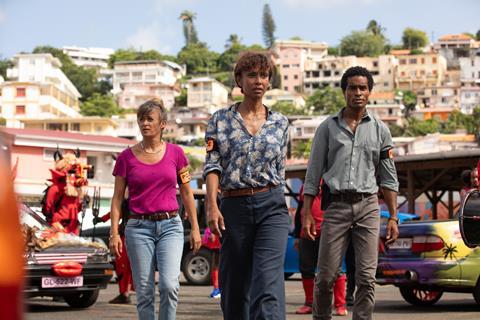
Commissioners are also being very selective about the talent with whom they work. “It’s very difficult for emerging talent to cut through right now,” says Maria Ishak, who recently launched development and financing outfit Mischief International after senior roles at Asacha Media Group and All3Media. “The writer in drama is key. What I hear all the time is, ‘Who is behind the piece?’ [Commissioners] are risk-averse. They want someone who is proven, who has been awarded and has had shows commissioned.”
Commissioners are also more cautious about the kinds of shows they are looking for. “Because fewer series are being commissioned, the first to be cut are those that are a little bit more daring and adventurous,” says Chimenz. “Mainstream” shows that can satisfy large audiences are most in demand, he adds.
Procedurals, such as Federation’s police drama Deadly Tropics, which is now in its seventh season for France 2 and has sold to 70 countries, have long been the bread and butter of terrestrial channels but are now also popular on streamers. HBO Max’s medical drama The Pitt has been well received by critics and audiences, fresh off five Primetime Emmy awards, including outstanding drama series.
True crime is also faring well, says Chimenz, singling out Federation’s Sambre — Anatomy Of A Crime, about one of France’s most notorious serial rapists, which debuted on France 2 and has been picked up by the BBC.
Of course, such series still need to be delivered with panache and style. “Creatively, we all feel a sense that crime is still top of the agenda,” says Feller. She notes that Warp has delivered two crime series this year: Netflix’s Adolescence and the BBC’s Reunion, a revenge thriller starring Matthew Gurney as a deaf man released from prison. “Both are crime, but they are a warped version of crime.”
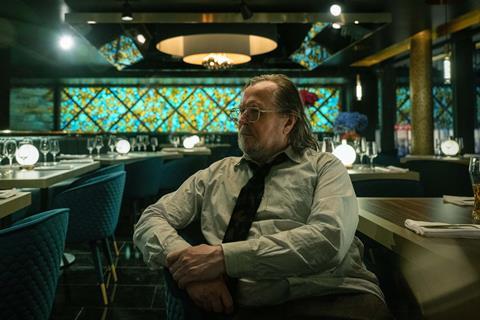
Feller also says there is strong demand for thrillers, and that horror is being requested, while Hera’s Marshall notes that commissioners are looking for “twisty, bingeable, contemporary thrillers”. Some of the year’s most talked-about shows fit this description, including HBO’s The White Lotus, Prime Video’s The Girlfriend and Apple TV+’s Severance and Slow Horses.
Marshall also points to the success of shows about people “standing up to the system and changing it”. In the UK, Mr Bates vs The Post Office was a huge hit for ITV last year. This year, Hera has had success with four-part factual drama I Fought The Law, about a mother’s 15-year battle to repeal the UK’s double-jeopardy law in order to bring her daughter’s murderer to justice. The series has sold widely around the world, and has racked up more than 15 million streams on the ITVX platform.
Also seen as safer bets by commissioners are shows based on books, games or previous films and TV shows. Federation, for example, is behind an upcoming four-part adaptation of Charles Dickens’ literary classic A Tale Of Two Cities, which stars Kit Harington and is set to air on the BBC in the UK and MGM+ in the US.
Mischief’s Ishak says there is continuing demand for “character-led, IP-driven shows [that are] rooted in local culture but with international themes”. She stresses that audiences living in a “very dark news cycle” also yearn for escapism from current world events. Nostalgia, particularly for shows set in the 1980s and 1990s, is a big theme.
Looking ahead
Executives are also mulling how best to adapt to the changed scripted landscape. Even though there is a drop in demand, there is still a strong appetite for TV shows. “We all have to rework budgets and business models,” says Ishak. “We need to be more strategic in how we develop as producers, what we develop and who we are developing for. I always ask, ‘Who is going to buy this?’”
She says producers need to be more focused on what they want to make. “A lot of companies just keep shows [in development] on their slate and keep working at them. But you have to move on and cut some of them out. There is a lot of time wasted. You’ve got to be smarter and more focused.”
Others are turning to technology to help cut costs. Chimenz points to the enormous potential for AI “to reduce costs and to slim down processes and procedures”. Notably, Vertigo Films, a Federation Studios company, is in production on animated feature Critterz, using AI to accelerate and streamline the workflow.
Elsewhere, producers are looking for government support. In Europe, more countries are introducing financial obligations and/or levies on streamers to invest in homegrown content. In the UK, meanwhile, a campaign for enhanced high-end TV tax credits to support homegrown stories, modelled on the successful Independent Film Tax Credit (IFTC), is gathering momentum.
For others, it is all about partnership. The BBC, for example, is working more with European broadcasters amid the struggle to find US co-production partners. Producers are also eyeing territories with advantageous incentives and low costs, such as Hungary or Greece.
“It’s a maze,” says Ishak. “From commissioners and broadcasters through to studios and indies, everyone is trying to collaborate and work together.”
Case Study: Adolescence
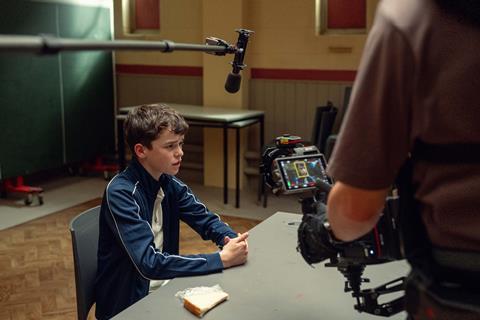
Warp Films’ Emily Feller on how Emmy winner Adolescence found its audience
Asked why she thought Netflix’s Primetime Emmy winner Adolescence, produced through Warp Films, cut through with viewers, the banner’s chief creative officer Emily Feller cites a number of reasons, from the creative team through to the way the story was told.
“We had the most incredible team talent around the project. Jack [Thorne] and Stephen [Graham] were writing. Stephen was in it with a fantastic cast around him. We had Phil [Barantini] directing — there was something special about the direction. And the look of the show… it felt very real, very grounded. It hit a moment. You can’t plan for that.
“One thing we have reflected on about the show is that Jack and Stephen weren’t judging a moment or judging people, they were raising questions. We’re not trying to tell people what to think. We’re not trying to tell people who’s at fault. We just raised some questions, and maybe that allowed an audience to look at themselves and ask those questions.
“In the first episode, we don’t go into the whole phone and incel culture, that theme isn’t really in there. It was all about connecting with a parent and the idea of your child being accused of an absolutely horrendous crime, asking, ‘What would you do? How would you feel? What would that make you want to do or say?’ That emotional connection straight away with that family pulled people in.”























No comments yet